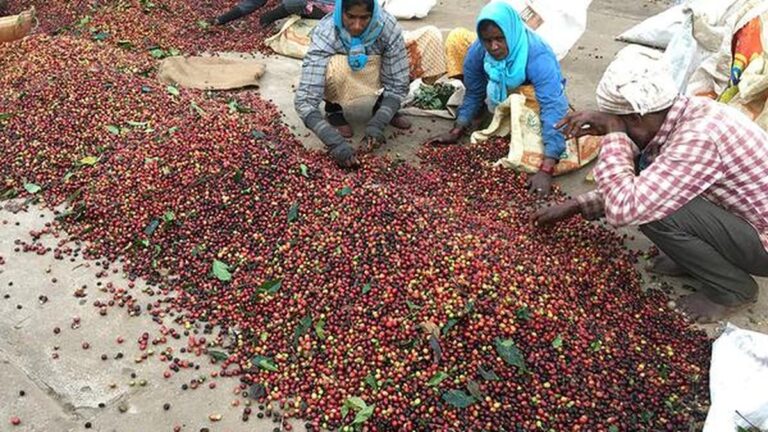Tougher standards: The EUDR aims to minimise imports of products linked to deforestation. | Photo by GP Sampath Kumar
Indian coffee exporters are seeing increased demand from European buyers who are building up stocks ahead of the deadline for compliance with the proposed European Union Deforestation Regulation (EUDR) standards.
The EUDR aims to minimise imports of products linked to deforestation and mandates strict due diligence and traceability measures for commodities such as coffee, which could impact Indian exports.
The EUDR Code applies to a wide range of products, including cattle, cocoa, coffee, oil palm, rubber, soy and timber, and companies have until December 30th this year to comply with its requirements.
“Frontloading Coffee”
“With the EUDR approaching, we are seeing a lot of coffee being brought forward as European customers purchase coffee before the deadline.
“Stocks are building up in Europe. Large shipments have already been made,” said Ramesh Raja, president of the Coffee Exporters Association.
Roasters bet on safety
Reflecting this trend, Indian coffee shipments between January 1 and June 21 this year rose 16% to over 2.37 million tonnes, compared with 2.04 million tonnes in the same period last year.
This includes re-exports, which increased 18.3% to 53,497 tonnes during the period from just over 45,213 tonnes in the same period last year.
Shipments of Indian coffee rose 15 percent to over 1.83 million tonnes against 1.59 million tonnes in the same period last year.
“Most of our customers who preferred just-in-time purchases now feel it is safe to have stock. For the last 20 years, just-in-time and supply chain management were the watchwords. Now, with EUDR regulations, the mindset is that you should have more stock. Roasters feel it is safe to keep coffee in their stores and warehouses. Also, many customers are asking for early shipments,” Raja said.
“All exporters are frontloading trade with European customers and the reason for that is clearly the EUDR,” he said.
The challenges continue
For Indian coffee exporters, the peak season runs from February to May. This year, the peak season has extended till June, Raja added. Usually, shipments fall between June and August due to the onset of the monsoon.
Focus on Europe
India is the world’s seventh largest coffee producer and the fifth largest coffee exporter after Brazil, Vietnam, Colombia and Indonesia. More than two-thirds of Indian coffee is exported. Around 60% of Indian coffee exports go to Europe, with Italy, Germany and Belgium being the main buyers of coffee.
Raja said despite the increase in shipping volumes, exporters continued to face logistical challenges, including limited availability of containers and rising freight rates, due to unrest in the Red Sea region.
“Since the attacks in the Red Sea, there has been a shortage of food containers and fewer sailings,” he added.
(The writer is a member of The Hindu Business Line)


